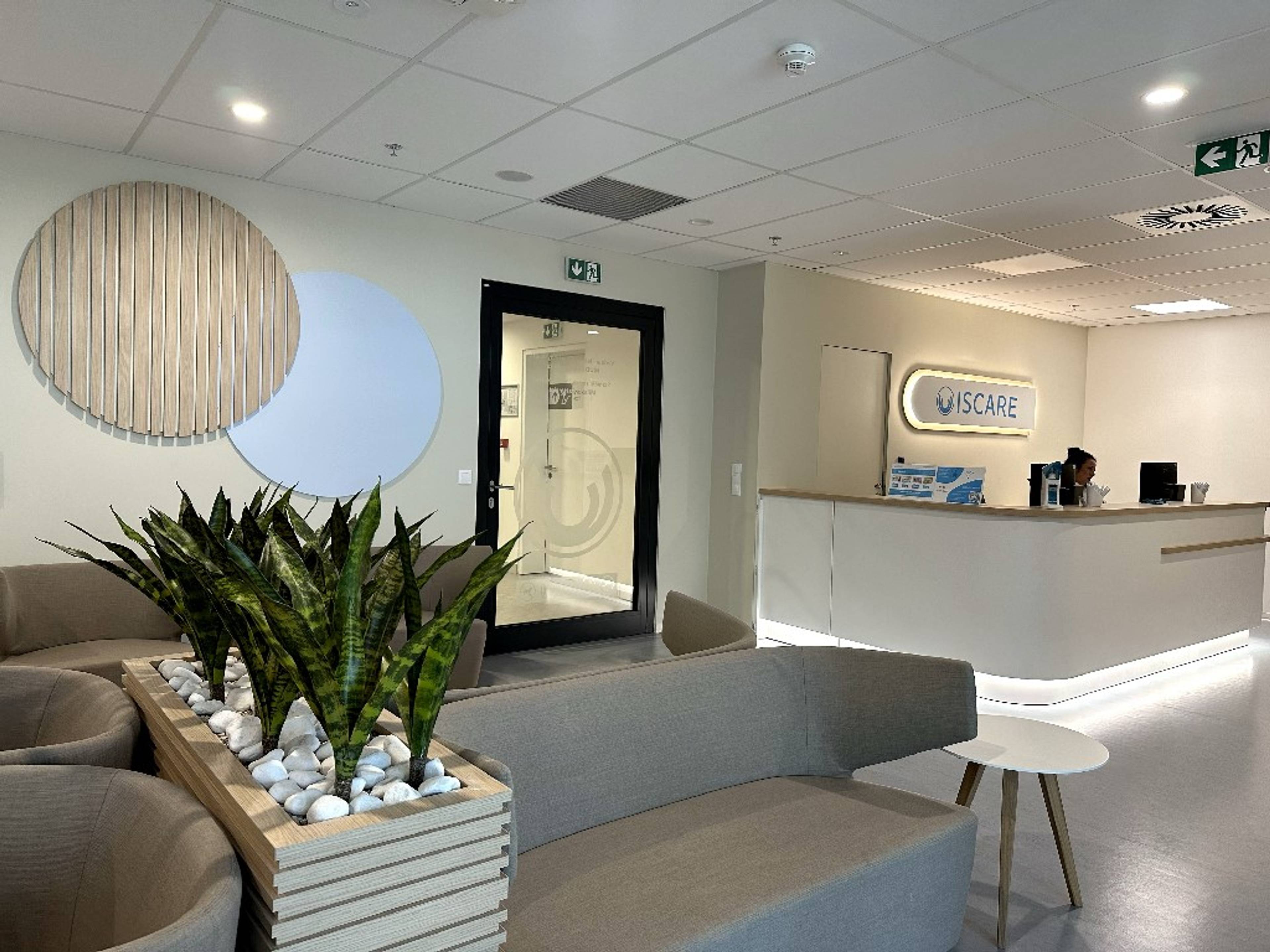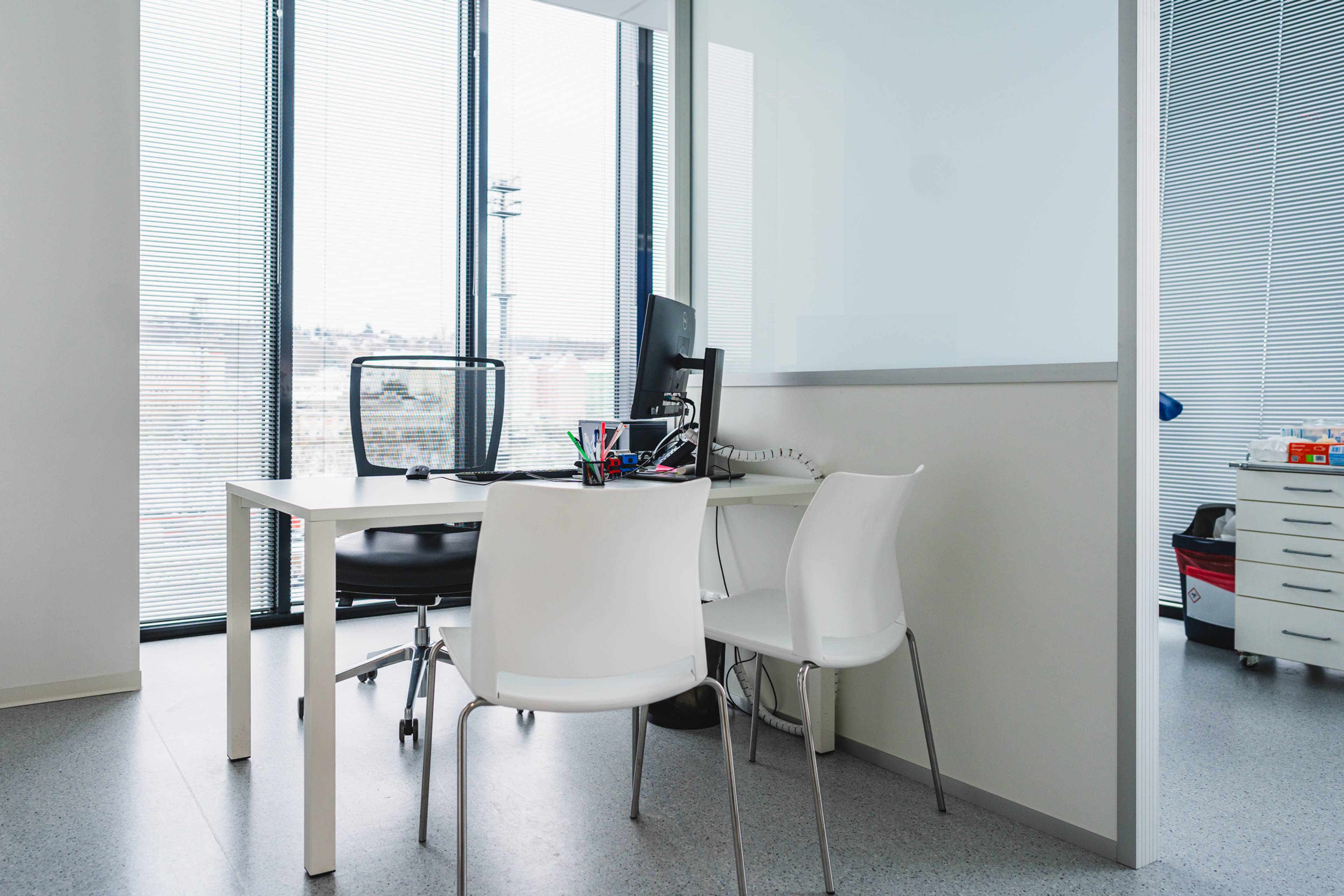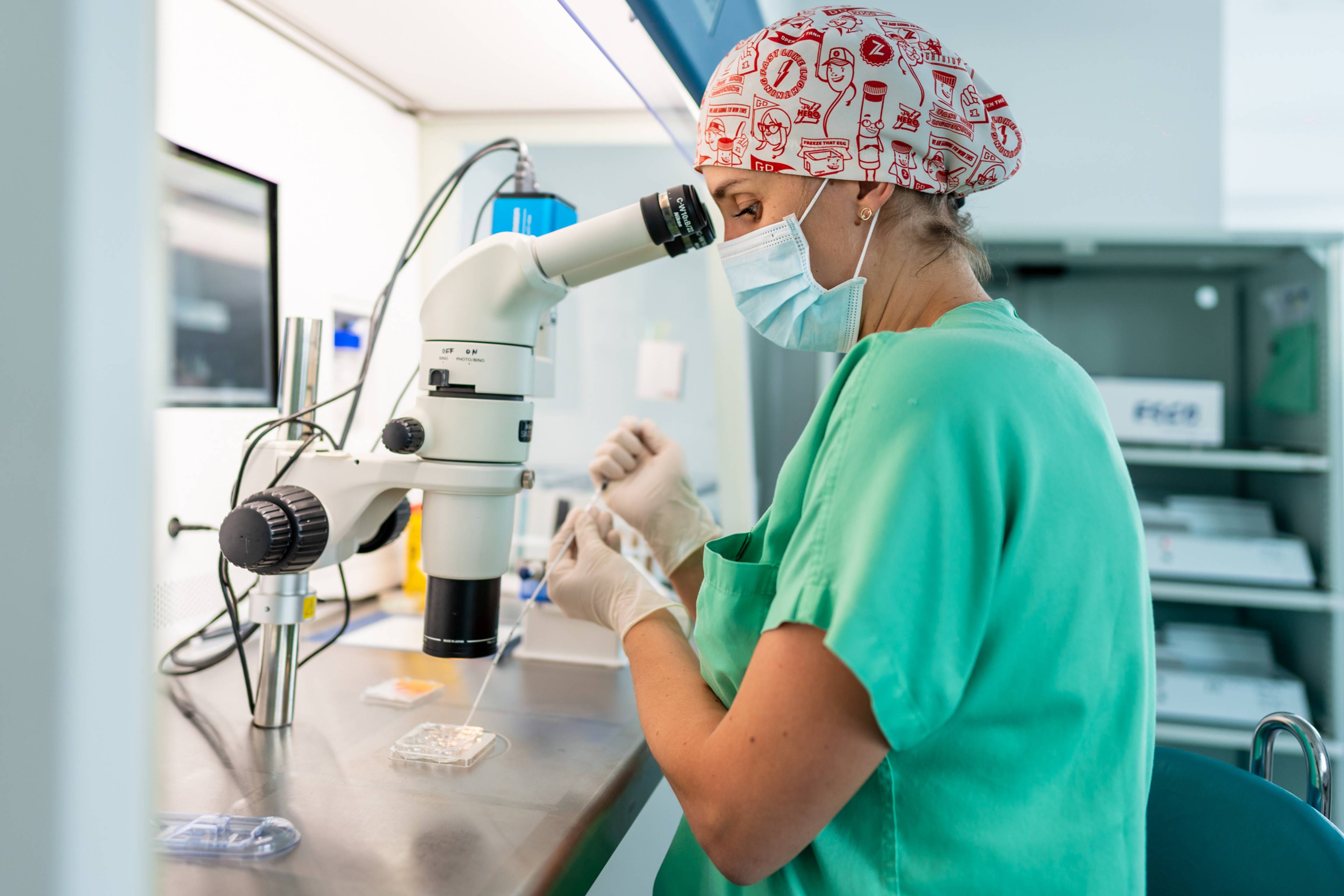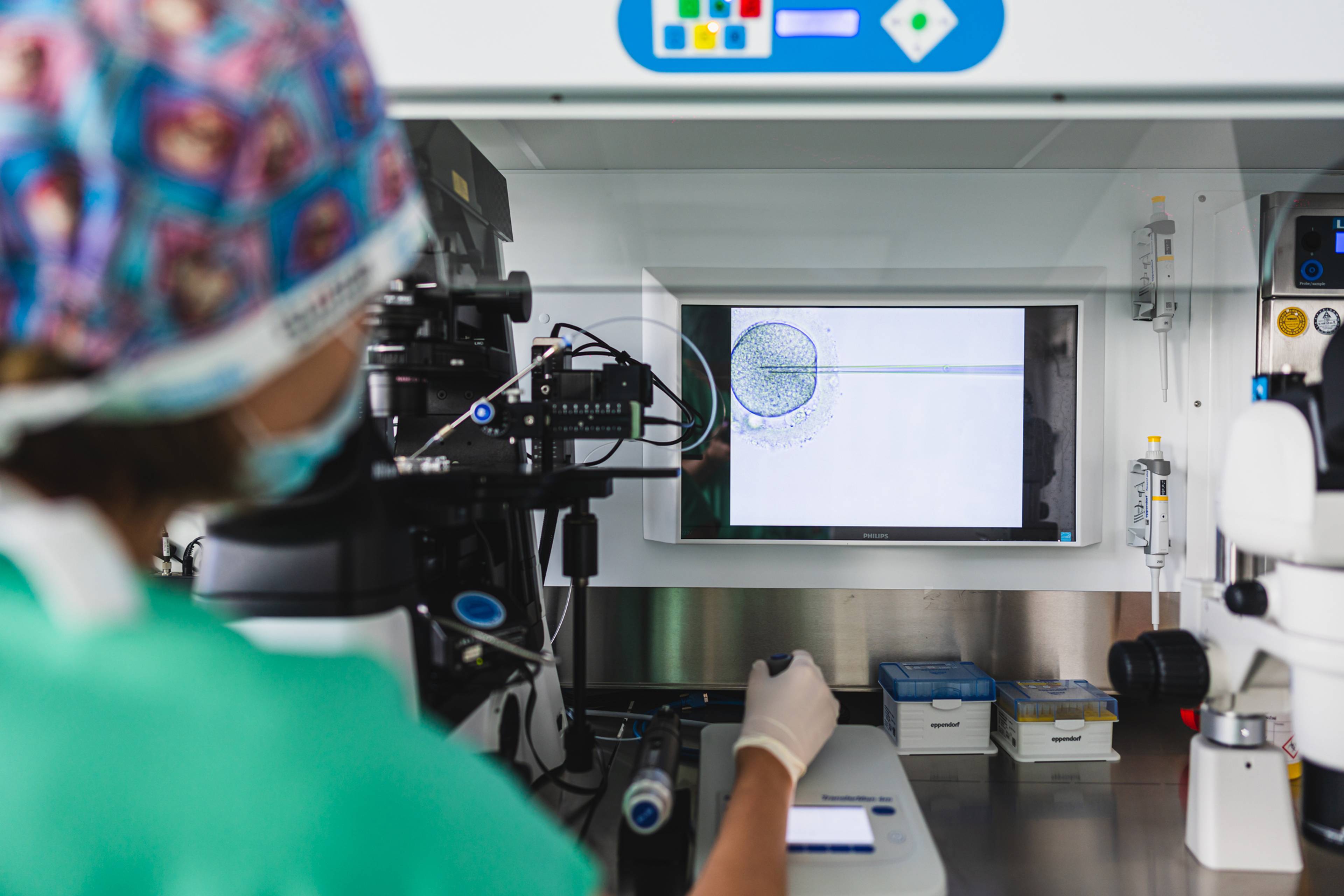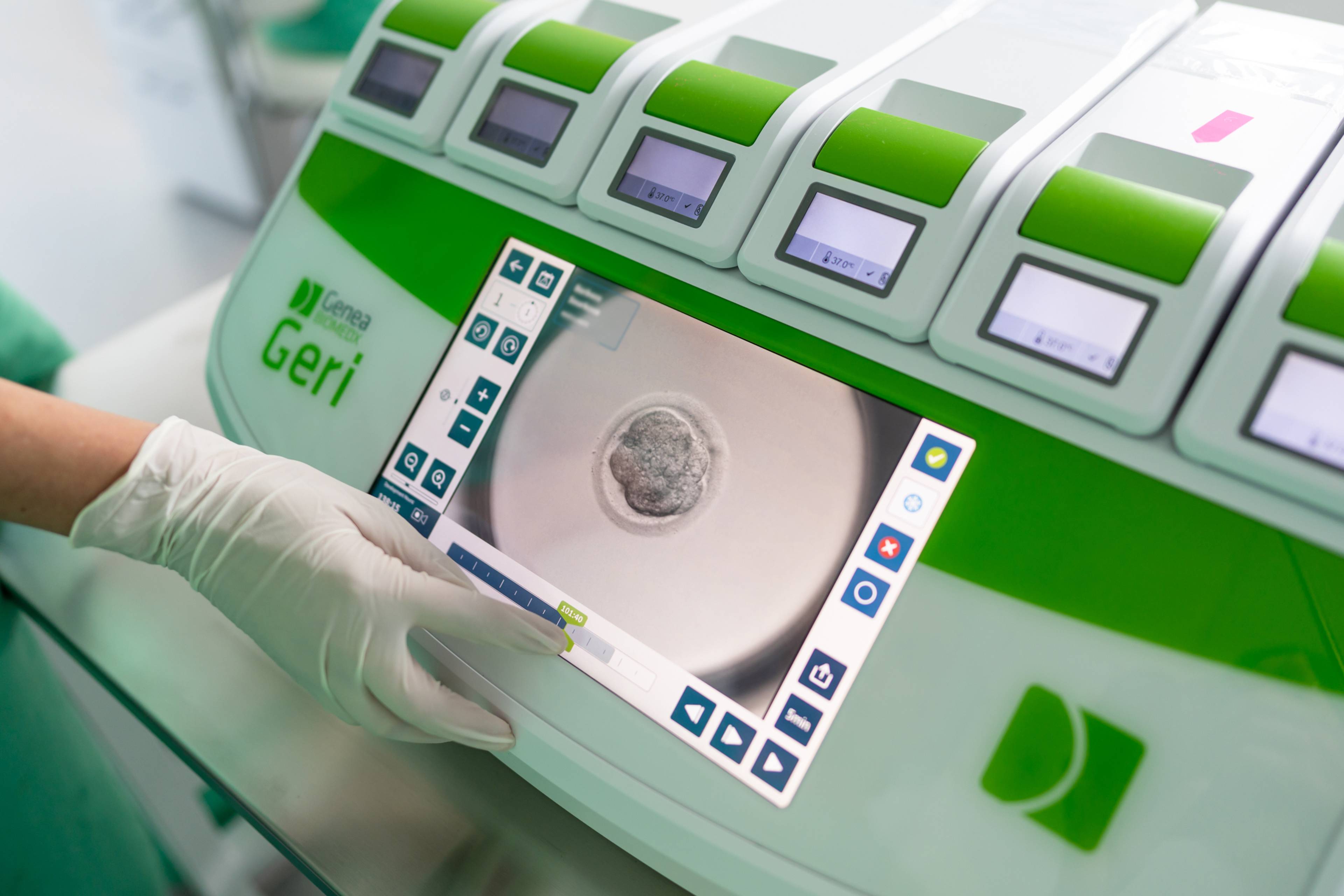Hormonal stimulation for a higher chance of successful conception
A stimulated IVF cycle is an assisted reproduction method for couples who are unable to achieve pregnancy naturally. This method of artificial insemination just simulates the natural fertilization process.
During IVF, the oocytes and sperm spontaneously join during cultivation. A drop of ejaculate is added to the oocyte and the sperm then penetrates the oocyte. However, this method of fertilization can only be recommended if the partner's spermiogram matches the normal values of a healthy fertile man.
- Hormonal stimulation of the patient.
- Oocytes retrieval and fertilization with own or donated sperm.
- Followed by transfer or cryotransfer of the embryo.
How IVF works
Consultation, treatment planning and stimulation
During your consultation, our physician will design a tailored plan for ovarian stimulation based on your needs. This plan aims for the optimal development and maturation of multiple eggs. Following this, you'll receive all necessary medications to begin treatment. Throughout the stimulation process, it's important to monitor ovarian follicle development and endometrium thickness through ultrasound examinations. While you have the option to undergo these ultrasounds with your own Gynaecologist, we recommend having them at our clinic to ensure that egg retrieval aligns with optimal egg maturation. Ovarian stimulation typically involves subcutaneous injections, which can be self-administered at home or with assistance from a healthcare provider.
Egg retrieval
Once your ovarian follicles are mature, we will perform an egg retrieval (Ovum Pick-Up. These eggs are fertilised the same day with your partner's sperm, which can be either fresh or previously frozen at an earlier consultation. For the best results, it is recommended that your partner abstains from sex for 2-4 days before providing the sperm sample.
Fertilisation
The retrieved eggs and sperm are combined in a laboratory dish for fertilisation. Fertilisation can occur through traditional insemination or intracytoplasmic sperm injection (ICSI), where a single sperm is directly injected into an egg. Ads-on methodscan help increase the chances of a successful pregnancy.
Embryo growth and selection
The healthiest embryos are selected based on their appearance and developmental stage. Embryo quality depends on the quality of sperm, eggs and the combination of genetic information of both partners.In case of an increased risk of congenital genetic diseases, we use the PGT-A and PGT-Mgenetic diagnostic tests. Preimplantation genetic testing (PGT)may be performed to screen for genetic abnormalities in some cases.
Embryo transfer
During the transfer, we use one or a maximum of two embryos. Three to five days after fertilisation, we select the best quality embryos to be transferred to your womb. Usually, we transfer two embryos. You can discuss with your doctor and embryologist how many embryos you feel comfortable having transferred. While transferring more embryos can increase the chances of success, it also raises the risks for both the mother and the foetuses. We aim to minimize these risks and make decisions with each couple individually.
One hour after the embryo transfer, you will be able to leave our clinic and travel. To confirm your pregnancy, you can take a test 14 days after the embryo transfer. Urine tests are widely available at pharmacies, but blood tests measuring hCG (Beta hCG) are more reliable.
Luteal Phase support
Hormonal medications, such as progesterone, are given to support the uterine lining and increase the chances of implantation.
Post-implantation checks
A blood test is conducted to determine if implantation has occurred and if the woman is pregnant. Extra embryos that are not transferred may be frozen (cryopreserved) for future use.

PhDr. Dalibor Jiříček
Fertility Care Coordinator
Contact us
Take a look
How it looks like at
Assisted Reproduction
